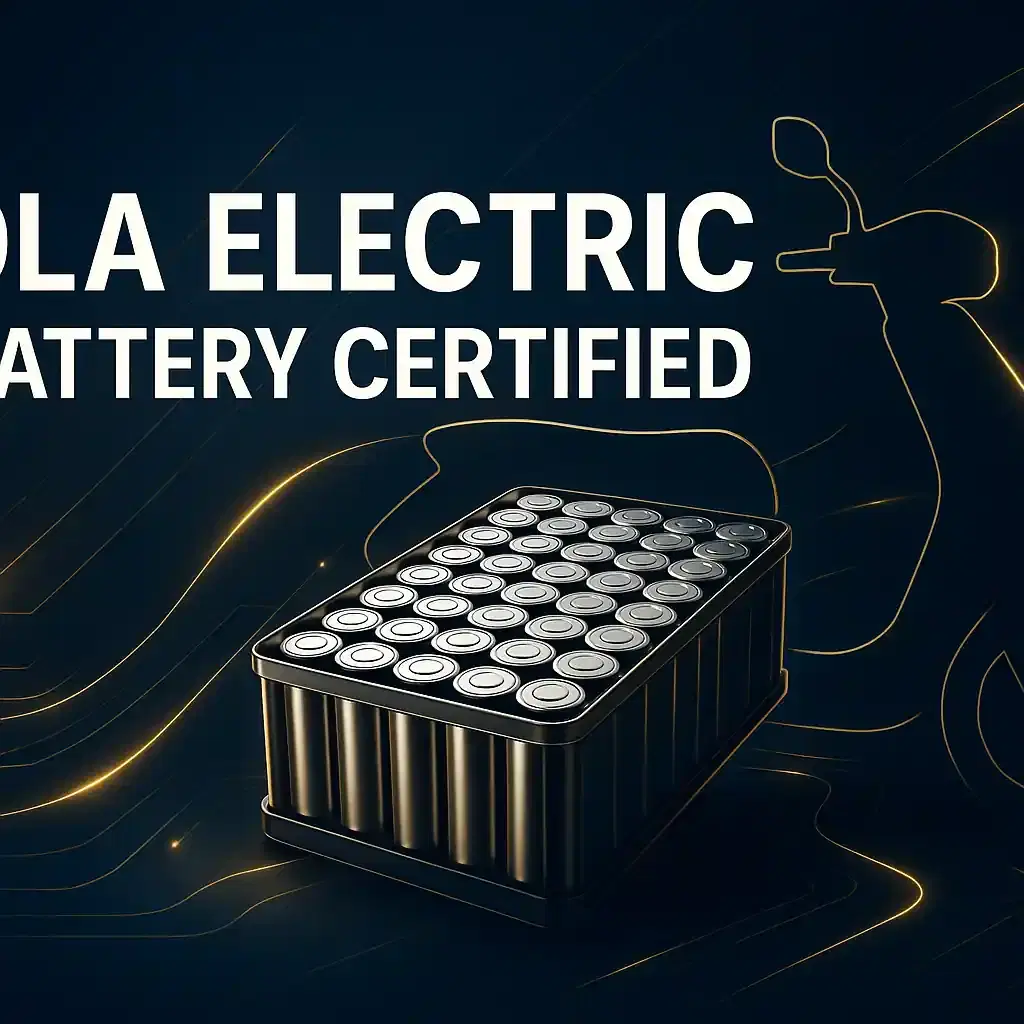Ola Electric's In-House Battery Pack Receives Crucial ARAI Certification
Industrial Goods/Services
|
28th October 2025, 9:40 AM

▶
Short Description :
Detailed Coverage :
Ola Electric has achieved a significant milestone with the Automotive Research Association of India (ARAI) granting certification to its in-house developed 4680 Bharat Cell battery pack, specifically the 5.2 kWh variant. This certification, obtained under the AIS-156 Amendment 4, is a testament to the battery pack's compliance with India's rigorous safety and environmental regulations for electric vehicles (EVs) and their energy storage systems. These regulations cover crucial aspects like protection against over-charging, thermal runaway, short circuits, and water ingress (IPX7).
This development paves the way for Ola Electric to integrate its proprietary battery cells into its upcoming vehicles, starting with the S1 Pro+ electric scooter. The company views this as a defining moment in its ambition to establish India's leadership in EV technology and lessen dependency on global supply chains, particularly imports from China and Korea. Ola Electric claims its 4680 Bharat Cell offers five times more energy density (275 Wh/kg) compared to existing 2170 cells, promising enhanced range, improved performance, and better unit economics.
The company has been investing heavily in its battery manufacturing capabilities, including a recent infusion of INR 199 crore into Ola Cell Technologies and realigning IPO funds for R&D. Integration of these in-house cells is considered a centerpiece for Ola Electric's profitability strategy, expected to lead to significant margin expansion.
Impact: This certification is a crucial step for Ola Electric, boosting its technological self-reliance and potentially improving profitability through reduced import costs and enhanced product performance. It also signals progress for domestic EV component manufacturing in India, potentially influencing investor confidence in the company's long-term strategy and its ability to compete effectively. The move towards in-house battery production is vital for sustainable growth in the competitive EV market. Rating: 7/10
Difficult Terms: ARAI: Automotive Research Association of India, a leading automotive R&D organization in India. AIS-156 Amendment 4: A specific amendment to India's Automotive Industry Standards, detailing safety and performance requirements for electric vehicle batteries. kWh: Kilowatt-hour, a unit of electrical energy, commonly used to measure battery capacity. Thermal runaway: A dangerous condition where a battery cell's temperature increases uncontrollably, potentially leading to fire or explosion. Short circuits: An electrical fault causing an abnormal current flow, often resulting in overheating and damage. IPX7: An Ingress Protection rating indicating protection against submersion in water up to 1 meter for 30 minutes. Wh/kg: Watt-hour per kilogram, a unit measuring specific energy density, indicating how much energy a battery can store per unit of mass. Gigafactory: A very large-scale manufacturing facility, primarily for batteries. IPO: Initial Public Offering, the process of a private company selling shares to the public for the first time. FY26: Fiscal Year 2026, the financial year ending March 31, 2026. YoY: Year-over-Year, a method of comparing financial data from one year to the same period in the previous year.